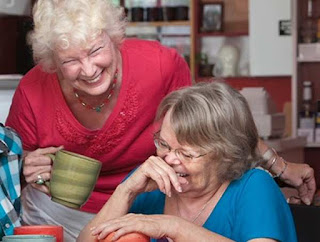| Our DNA is the main factor to living to a very old age. Mum and Dad play the major part in a person's DNA. genetic screen inheritance words important letters long page life to genetic internet inheritance computer important long type life on
genetic data inheritance figure important text long keys life in genetic letters inheritance create important paragraph long keyboard life up genetic colors inheritance software important hardware long code life eh || human cells modifications mutation epigenetics inherited molecular stem genome disease environment cancer immune lifespan || epigenetic welsh jennifer offspring human researchers follow space animals university humans finding cells modifications complex lives methyl nematodes terms tom top company researcher told normal protein brunet turn nematode mutation longer called proteins impact history strange earth planet tech privacy site content copyright submit risk newsletter quantum day toowoomba watch body tinnitus women traditional epigenetics updated silvia twitter involved sweat email interplay inherited affected concept suggested generations molecular stem adult days actual caused mutant group genome survive shows diet molecule hold results organism affect inherit longevity genes genetics person politics search vaupel comments neuroscience disease environment live review health culture role average llc science blogs work medicine people medical biology study subscribe popular parents countries twins span lived compared media rss technology policy journalism school diseases nutrition nature labor funny news theory education eating cell cancer blogging aging implant brain auditory implanted youngest envy behavior discussion razib system immune cardiovascular provide combination simply good article read include environmental larger estimates inheritability nordic ages lifespan born years studies research emphasis events factors times spans percent tall height view posted thought previously large pedantry pure || dna || pure pedantry large previously thought posted view height tall percent spans times factors events emphasis research studies years born lifespan ages nordic inheritability estimates larger environmental include read article good simply combination provide cardiovascular immune system razib discussion behavior envy youngest implanted auditory brain implant aging blogging cancer cell eating education theory news funny labor nature nutrition diseases school journalism policy technology rss media compared lived span twins countries parents popular subscribe study biology medical people medicine work blogs science llc average role culture health review live august environment disease neuroscience comments vaupel search politics person genetics genes longevity inherit affect organism results hold molecule diet shows survive genome group mutant caused actual days adult stem molecular generations suggested concept affected inherited interplay email sweat involved twitter silvia updated epigenetics traditional women tinnitus body watch toowoomba day quantum newsletter risk submit copyright content site privacy tech planet earth strange history impact proteins called longer mutation nematode turn brunet protein normal told researcher company top tom terms nematodes methyl lives complex modifications cells finding humans university animals space follow researchers human offspring jennifer welsh epigenetic ||
genetic data inheritance figure important text long keys life in genetic letters inheritance create important paragraph long keyboard life up genetic colors inheritance software important hardware long code life eh || human cells modifications mutation epigenetics inherited molecular stem genome disease environment cancer immune lifespan || epigenetic welsh jennifer offspring human researchers follow space animals university humans finding cells modifications complex lives methyl nematodes terms tom top company researcher told normal protein brunet turn nematode mutation longer called proteins impact history strange earth planet tech privacy site content copyright submit risk newsletter quantum day toowoomba watch body tinnitus women traditional epigenetics updated silvia twitter involved sweat email interplay inherited affected concept suggested generations molecular stem adult days actual caused mutant group genome survive shows diet molecule hold results organism affect inherit longevity genes genetics person politics search vaupel comments neuroscience disease environment live review health culture role average llc science blogs work medicine people medical biology study subscribe popular parents countries twins span lived compared media rss technology policy journalism school diseases nutrition nature labor funny news theory education eating cell cancer blogging aging implant brain auditory implanted youngest envy behavior discussion razib system immune cardiovascular provide combination simply good article read include environmental larger estimates inheritability nordic ages lifespan born years studies research emphasis events factors times spans percent tall height view posted thought previously large pedantry pure || dna || pure pedantry large previously thought posted view height tall percent spans times factors events emphasis research studies years born lifespan ages nordic inheritability estimates larger environmental include read article good simply combination provide cardiovascular immune system razib discussion behavior envy youngest implanted auditory brain implant aging blogging cancer cell eating education theory news funny labor nature nutrition diseases school journalism policy technology rss media compared lived span twins countries parents popular subscribe study biology medical people medicine work blogs science llc average role culture health review live august environment disease neuroscience comments vaupel search politics person genetics genes longevity inherit affect organism results hold molecule diet shows survive genome group mutant caused actual days adult stem molecular generations suggested concept affected inherited interplay email sweat involved twitter silvia updated epigenetics traditional women tinnitus body watch toowoomba day quantum newsletter risk submit copyright content site privacy tech planet earth strange history impact proteins called longer mutation nematode turn brunet protein normal told researcher company top tom terms nematodes methyl lives complex modifications cells finding humans university animals space follow researchers human offspring jennifer welsh epigenetic ||














